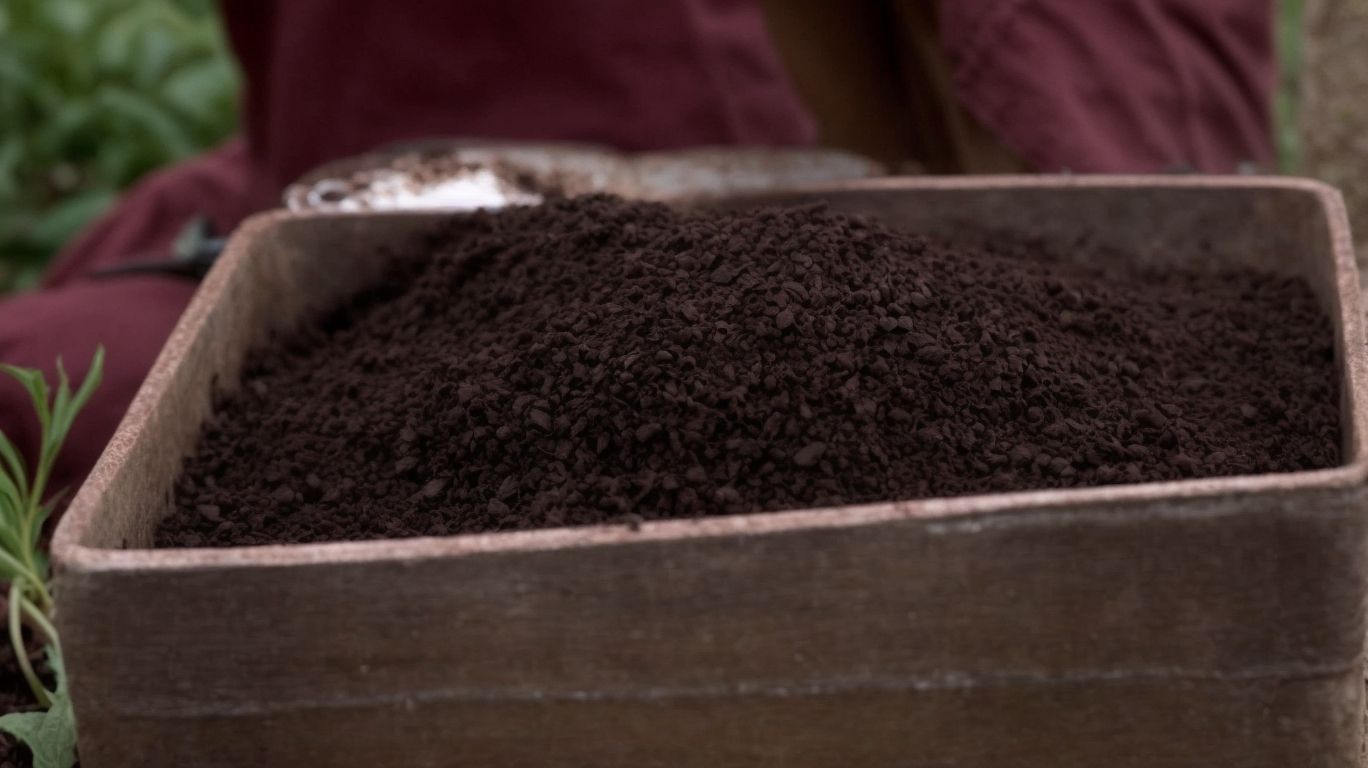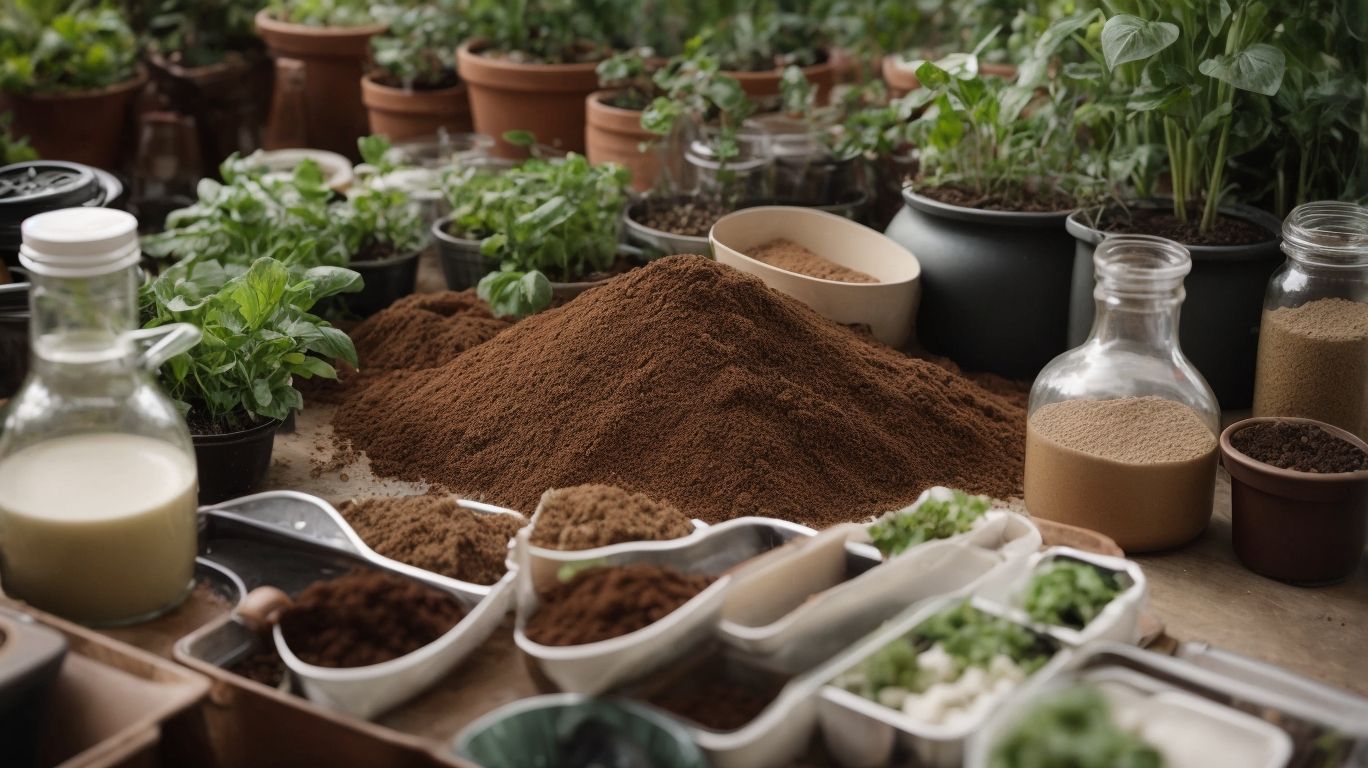Cow manure, often referred to as “black gold,” has been valued for centuries as a natural and effective way to enhance soil fertility and improve plant growth. In this comprehensive guide, we will explore the benefits and techniques of using cow manure in gardening. From understanding the nutrients it provides to learning how to properly prepare and apply it, we will cover everything you need to know to harness the power of cow manure for your garden.
We will discuss the dos and don’ts of using cow manure, as well as explore alternative options for those seeking organic fertilizers. Whether you’re a seasoned gardener or just starting out, this article will provide you with practical insights and tips for integrating cow manure into your gardening practices. So, let’s delve into the world of cow manure and discover how it can transform your garden into a thriving, nutrient-rich paradise.
Key Takeaways:
What is Cow Manure?
Cow manure, also known as cow dung, is a valuable organic material produced through the digestive process of cows. It is a popular choice for gardeners and farmers due to its rich nutrient content and organic properties.
Composed primarily of organic matter such as undigested plant fibers, it is a potent source of nitrogen, phosphorus, and potassium, essential nutrients for plant growth. When cow manure is composted, the process breaks down the organic matter, creating a rich fertilizer that improves soil structure and fertility.
The presence of beneficial bacteria in cow manure further enhances its value as a natural fertilizer, promoting the growth of microorganisms that aid in breaking down organic matter and releasing nutrients for plant uptake.
Why is Cow Manure Beneficial for Gardening?
Cow manure offers a myriad of benefits for gardening enthusiasts and agricultural practices, serving as an excellent source of organic nutrients and soil enrichment.
Its natural composition, rich in essential elements such as nitrogen, phosphorus, and potassium (NPK), promotes a healthy and fertile environment for plant growth. Its slow-release nature ensures a sustainable, long-term impact on soil fertility. The incorporation of cow manure aids in enhancing soil structure, water retention, and microbial activity, fostering a thriving ecosystem for plants.
By utilizing cow manure, gardeners contribute to environmental sustainability through recycling a natural byproduct and reducing reliance on synthetic fertilizers. This practice aligns with the principles of organic farming and promotes a healthier, chemical-free approach to cultivation.
What Nutrients Does Cow Manure Provide for Plants?
Cow manure enriches the soil and plants with essential nutrients such as nitrogen, phosphorus, and potassium, promoting healthy growth and vitality.
Cow manure contains organic compounds like humic acids and beneficial bacteria that play crucial roles in soil health and plant development. Nitrogen facilitates leaf and stem growth, phosphorus contributes to root development, and potassium aids in overall plant health and disease resistance. The beneficial bacteria present in cow manure help break down organic matter, improving soil structure and promoting nutrient availability. The composting process further enhances the release of these valuable nutrients, making cow manure an invaluable resource for sustainable and nutrient-rich agriculture.
How to Prepare Cow Manure for Gardening?
Preparing cow manure for gardening involves a deliberate composting process that harnesses the natural breakdown of organic matter to create a nutrient-rich and pathogen-free soil amendment.
Composting cow manure is a multi-step process that requires attention to detail and a careful balance of organic materials. The first step is to gather the cow manure along with other organic material like straw, kitchen scraps, and yard waste. These ingredients are then mixed to create a balanced compost pile.
To accelerate the decomposition process and ensure the elimination of potential pathogens, hot composting techniques are often employed. This involves regularly turning the compost pile to increase its temperature, typically above 130°F (55°C), which helps break down the materials and kill harmful bacteria.
Choosing the Right Type of Cow Manure
Selecting the appropriate type of cow manure is critical for optimizing its benefits as a natural fertilizer and soil amendment in gardening practices.
When choosing cow manure for your garden, it is important to consider its organic nature. Look for manure that is sourced from grass-fed cows and has not been treated with synthetic chemicals or antibiotics. This ensures that the manure is rich in nutrients and microorganisms that are beneficial for the soil. Consider the age of the manure; well-aged manure is less likely to burn plants and has a milder odor.
Composting Cow Manure
Composting cow manure is a natural process that involves the decomposition of organic materials, fostering the growth of beneficial bacteria and creating a nutrient-dense compost for gardening purposes.
One of the key techniques used in composting cow manure is hot composting. This method involves creating high temperatures within the compost pile, which speeds up the decomposition process and helps to kill off any pathogens or weed seeds present in the manure.
The role of organic nitrogen is crucial in the composting process as it provides the necessary nutrients for the growth of beneficial bacteria, which in turn accelerates the breakdown of the manure. Proper management and monitoring of the temperature and moisture levels throughout the composting process are essential to ensure the efficiency and effectiveness of the composting process.
Mixing Cow Manure with Other Organic Material
Integrating cow manure with other organic materials in the composting process enhances its nutrient content and promotes balanced soil enrichment for sustainable gardening practices.
Cow manure is a valuable addition to the compost, as it is rich in nitrogen, phosphorus, and potassium, essential nutrients for plant growth. When combined with organic matter such as leaves, grass clippings, and kitchen scraps, it creates a nutrient-dense mixture that improves soil structure and fertility.
The composting process helps break down the manure’s organic compounds, reducing the risk of harmful pathogens and odor, making it safe for use in gardens. This natural recycling approach not only minimizes waste but also reduces the reliance on synthetic fertilizers, promoting a more sustainable and eco-friendly gardening environment. The combination of cow manure and other organic materials in composting is truly a remarkable way to nourish the soil and foster healthy plant growth.
How to Apply Cow Manure in Gardening?
The application of cow manure in gardening involves strategic utilization as a natural fertilizer, soil amendment, and compost activator to maximize its beneficial impacts on plant growth and soil health.
When using cow manure as a natural fertilizer, it’s essential to consider its nutrient content, such as nitrogen, phosphorus, and potassium, which can enrich the soil and support healthy plant development. As a soil amendment, cow manure helps improve soil structure, moisture retention, and nutrient availability, thereby fostering a more conducive environment for plant root growth and overall resilience.
Incorporating cow manure in compost bins or piles can accelerate the decomposition process, as it serves as a valuable activator by introducing essential microorganisms and promoting the breakdown of organic matter into nutrient-rich compost. These diverse applications of cow manure demonstrate its multifaceted role in nurturing garden vitality and sustainability.
Using Cow Manure as a Fertilizer
Utilizing cow manure as a natural fertilizer enriches the soil with essential nutrients, fostering robust plant growth and sustainable gardening practices.
Not only does cow manure provide vital nutrients such as nitrogen, phosphorus, and potassium, it also improves the soil’s structure and water retention capacity. This enhanced soil composition promotes healthier root development and overall plant resilience. When properly composted, cow manure reduces the risk of weed growth and helps suppress plant diseases, creating a more sustainable and eco-friendly gardening environment.
Farmers and gardeners often use cow manure as a cost-effective and environmentally conscious approach to nurturing their crops and landscaping. Its utilization aligns with the principles of organic farming and can contribute to improved crop yields and long-term soil health.
Using Cow Manure as a Soil Amendment
Incorporating cow manure as a soil amendment enhances soil structure, fertility, and organic content, creating an optimal environment for plant growth and gardening success.
Cow manure is an excellent source of organic matter and essential nutrients such as nitrogen, phosphorus, and potassium. When worked into the soil, it improves its ability to retain moisture and nutrients, promoting healthy root development and overall plant vigor.
The gradual release of nutrients from cow manure supports sustained plant growth, reducing the need for synthetic fertilizers and minimizing the risk of nutrient leaching. This natural, eco-friendly approach aligns with sustainable gardening practices and helps maintain a balanced ecosystem.
When used over time, cow manure enriches the soil with beneficial microorganisms, fostering a healthy soil biome that supports diverse flora and fauna. This contributes to the long-term fertility and resilience of the soil, sustaining productivity for extended periods.
Using Cow Manure as a Compost Activator
Cow manure serves as an effective compost activator, accelerating the decomposition of organic materials and enriching the resulting compost with vital nutrients for gardening applications.
By introducing cow manure into the composting process, it helps in breaking down the organic matter more rapidly, leading to the quicker production of nutrient-rich compost. This organic enrichment enhances the quality of the compost, making it an ideal natural fertilizer for nourishing plants and improving soil structure.
Additionally, cow manure increases the availability of essential nutrients such as nitrogen, phosphorus, and potassium, promoting healthy plant growth and contributing to overall soil fertility.
What are the Dos and Don’ts of Applying Cow Manure in Gardening?
Understanding the proper dos and don’ts of applying cow manure in gardening is essential for maximizing its benefits while avoiding potential challenges or imbalances in the soil and plant health.
When incorporating cow manure into gardening practices, it’s crucial to compost it properly to minimize the risk of introducing harmful pathogens. This can be achieved by mixing it with other organic materials and allowing the composting process to break down potential contaminants.
Another important consideration is the timing of application. Cow manure should be added to the soil well before planting, allowing it to decompose and connect with the existing soil structure. This ensures that the nutrients are readily available to the plants without causing nitrogen burn or other imbalances.
It’s also advisable to conduct soil tests before and after applying cow manure to monitor the nutrient levels and pH balance. This helps in adjusting the application amounts and frequencies to maintain optimal growing conditions.
Do: Test the Soil Before Applying Cow Manure
Conducting a soil test before applying cow manure allows for precise adjustments and ensures optimal nutrient balance and compatibility for plant growth and gardening success.
Soil testing is a critical step in sustainable gardening practices, as it provides valuable insights into the health and composition of the soil. By evaluating key factors such as pH levels, nutrient content, and soil structure, gardeners can make informed decisions about the application of cow manure. This proactive approach helps in avoiding potential imbalances and ensures that plants receive the necessary nutrients for healthy growth.
Soil testing promotes environmental sustainability by minimizing the risk of nutrient runoff, thereby contributing to a healthier ecosystem.
Don’t: Apply Fresh Cow Manure Directly to Plants
Directly applying fresh cow manure to plants can pose risks of pathogen contamination and nutrient imbalances, necessitating proper composting and management before use in gardening practices.
When fresh cow manure is applied directly to plants, it may contain harmful pathogens such as E. coli and Salmonella, posing significant health risks. In addition, the high nitrogen content in fresh manure can lead to nutrient imbalances, potentially harming plant growth and soil health.
To mitigate these challenges, composting the cow manure will promote the decomposition of organic matter, reducing pathogen levels and stabilizing nutrient release. Proper management of composting process, including temperature control and aeration, is essential to ensure pathogen destruction and a balanced nutrient profile for safe application to plants.
Do: Use Cow Manure Sparingly
Utilizing cow manure sparingly in gardening practices ensures a balanced and sustainable approach to soil enrichment, promoting healthy plant growth and long-term garden vitality.
When used judiciously, cow manure acts as a source of essential nutrients such as nitrogen, phosphorus, and potassium, enhancing soil fertility and structure. Its organic composition improves water retention and aeration, reducing the need for synthetic fertilizers and aiding in sustainable gardening practices.
Incorporating cow manure in gardening contributes to reducing waste and aligns with eco-friendly principles, as it provides a natural alternative to chemical-based soil amendments. Diligent application and proper composting further minimize potential odors and pathogens, fostering a safe and healthy environment for plants and gardeners alike.
It’s crucial to follow recommended guidelines for application frequency and quantity, as excessive use can lead to nutrient imbalances and potential environmental concerns. Considering the source of the cow manure is important to ensure it’s free from contaminants and hormones, prioritizing the health and quality of your garden produce.
What are the Alternatives to Cow Manure in Gardening?
While cow manure is a popular choice, several alternatives, such as composted chicken manure, worm castings, and green manure cover crops, offer effective organic options for soil enrichment and sustainable gardening practices.
Composted chicken manure is a rich source of nitrogen, phosphorus, and potassium, making it an excellent choice for promoting healthy plant growth. Worm castings, also known as vermicompost, are a nutrient-dense organic fertilizer with a balanced mix of essential plant nutrients.
Green manure cover crops, such as clover, vetch, or alfalfa, play a vital role in fixing nitrogen in the soil, improving its structure, and enhancing microbial activity, thereby enriching the soil with organic matter.
Composted Chicken Manure
Composted chicken manure provides a nutrient-rich and pathogen-free alternative for soil enrichment and organic gardening, offering sustainable benefits for plant growth and vitality.
When compared to cow manure, composted chicken manure contains higher levels of nitrogen and phosphorus, making it an excellent choice for improving soil fertility. Its balanced nutrient profile promotes healthy root development and vigorous plant growth, resulting in bountiful harvests. The composting process significantly reduces the risk of pathogens, making it safe and beneficial for organic gardening practices. By using composted chicken manure, gardeners can contribute to sustainable agricultural practices and minimize their environmental impact.
Worm Castings
Worm castings present a natural and nutrient-dense alternative to cow manure, fostering soil fertility, balanced nutrients, and sustainable benefits for organic gardening practices.
These castings are rich in humus, which plays a crucial role in enhancing soil structure and water retention, making them beneficial for a variety of plants, including vegetables, fruits, and flowers. Unlike cow manure, worm castings have a milder odor and do not contain any pathogens, making them safe for use in indoor and outdoor settings.
Worm castings also contribute to the reduction of food waste through composting, providing a sustainable solution for managing organic waste. Their slow-release nutrients support the overall health of plants, promoting robust growth and resistance to diseases and pests.
Green Manure Cover Crops
Green manure cover crops serve as an eco-friendly and natural alternative to cow manure, enriching the soil, promoting nutrient balance, and sustaining healthy gardening practices.
These cover crops, such as clover, vetch, and ryegrass, contribute to soil fertility by fixing nitrogen, breaking compacted soil, suppressing weeds, and preventing erosion.
By incorporating these crops into a crop rotation plan, gardeners can capitalize on their ability to enhance soil structure, improve water retention, and create a more favorable environment for beneficial microorganisms.
Using green manure cover crops also minimizes the reliance on chemical fertilizers, reducing the environmental impact and promoting sustainable nutrient management.
Frequently Asked Questions
How can I effectively apply cow manure in gardening?
There are several ways to apply cow manure in gardening, including using it as a fertilizer, compost, or mulch. It is important to properly prepare and apply the manure to ensure the best results.
What are some benefits of using cow manure in gardening?
Cow manure is an excellent source of organic matter, nutrients, and microorganisms that can improve soil health and plant growth. It also helps retain moisture in the soil and suppress weed growth.
Can I use fresh cow manure in gardening?
It is not recommended to use fresh cow manure in gardening as it can contain harmful bacteria and high levels of ammonia that can damage plants. It is best to compost or age the manure for at least 6 months before using it as a fertilizer.
How do I prepare cow manure for use in gardening?
To prepare cow manure for use in gardening, it is important to compost or age it properly. This can be done by mixing it with other organic materials, turning it regularly, and keeping it moist. The manure should be dark, crumbly, and have a pleasant earthy smell when it is ready for use.
Can I use cow manure in all types of gardening?
Yes, cow manure can be used in all types of gardening, including vegetable gardens, flower beds, and container gardens. However, it is important to use it in moderation and follow proper application methods to avoid over-fertilization.
How often should I apply cow manure in gardening?
The frequency of applying cow manure in gardening depends on the type of plants being grown and the condition of the soil. Generally, it is recommended to apply a layer of composted manure once or twice a year to maintain soil fertility.


